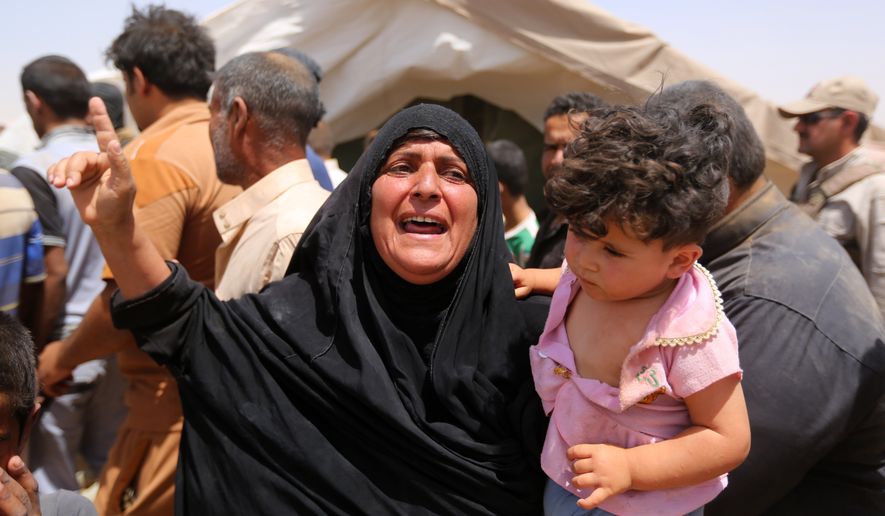Echoing concerns of Defense Secretary Ashton Carter, who said Iraqi troops have not shown a “will to fight” the Islamic State, many U.S. servicemen and women have expressed frustration over the Iraqi army’s inability to defend its nation, and hold varying views on how much U.S. engagement is the right way forward.
Carlos Madden, who returned from an Army deployment to Iraq in 2010, believes most service members aren’t eager to go back, saying it’s up to the Iraqis to ensure that terrorists aren’t welcome in their country.
“We gave up a lot to be there, and the problem right now is that, at the end of the day, the Iraqis need to do it themselves,” Mr. Madden told The Washington Times. “We’ve done so much for them. We’ve spilled a lot of blood on their streets. At some point, if they don’t stand up and do it themselves, it’s not going to happen.”
After leaving the Army as a staff sergeant in 2011, Mr. Madden earned his college degree and got a job at RallyPoint, a networking website for troops and veterans to receive career help and stay in touch with former unit members.
One question posed on a discussion board recently involved last week’s fall of the western Iraqi city of Ramadi into Islamic State control — something close to the hearts of service members who lost friends securing the city during the Iraq War.
On Sunday, Mr. Carter said Iraqi forces showed “no will to fight” Islamic State terrorists who seized Ramadi, the capital of Anbar province. The fall of Ramadi has sparked renewed questions about the effectiveness of the Obama administration’s approach in Iraq, which consists of retraining and rebuilding the Iraqi army, prodding Baghdad’s Shiite-led government to reconcile with Sunnis and bombing Islamic State targets from the air without committing U.S. ground troops.
The administration last week said it would consider sending more military advisers to Iraq.
With more than 3,000 Americans currently serving in the fight against the Islamic State, former Marine Butch Bracknell says he doesn’t think U.S. service members or civilians feel as if the country is at war in the same way it was in Iraq and Afghanistan in years past.
“I think most of the force believed we were all-in on those conflicts. I think now they see different units are going to be parsed out, going to be in more advisory roles,” he said. “Everyone kind of recognizes we are stepping back from this full commitment.”
Congress’ inaction for months on an Islamic State-specific authorization for the use of military force reflects a national lack of concern in defining the conflict against the terrorist group in Iraq and Syria, Mr. Bracknell said.
“If civilians around the country really cared about this issue, it would reflect in a vote in Congress,” he said. “They’d be piping up to their congressman.”
He said the majority of service members participating in today’s conflict aren’t looking to Congress for approval of the war — they are just worried about following orders and having enough resources to complete the mission.
Asha Castleberry, an Army Reserve captain who separated from the service on Friday, said younger troops are ready to deploy to Iraq and want to take action against the Islamic State.
After joining the Reserve in 2006 under the requirements of a college ROTC scholarship, Ms. Castleberry served in the Persian Gulf from November 2012 up to this month, working with representatives of different countries, such as Kuwait, Iraq and Jordan.
The lengthy overseas deployment was one reason Ms. Castleberry transitioned out: so that she could be closer to family in New York and go back to school to earn a doctoral degree. More than a decade of rigorous deployments may have taken a toll on some service members, but the youngest generation of troops is eager to deploy and use the skills they gained in training, Ms. Castleberry said.
“For the younger soldiers who have never deployed, they definitely look forward to their deployments, especially the ones going into Iraq,” she said. “They want to make a difference and provide a contribution to help the mission itself.”
• Jacqueline Klimas can be reached at jklimas@washingtontimes.com.




Please read our comment policy before commenting.